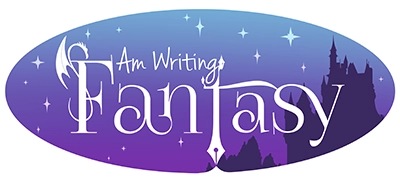[vc_row][vc_column][vc_column_text]I loved discovering a new series when I was a teenager. I was a voracious reader, easily devouring a paperback in a few days between school work and classes. And if it was a weekend… a book might not last a day. So finding a series was a big bonus. I didn’t need to waste time looking for another good book and meeting new characters. I could jump right into the next book with characters I’d come to love.
So the first time I saw a complaint that a book was part of a series, I was a little stunned. What on earth is wrong with a series?! Well, it’s taken a few years and a lot of listening, but I think I see both sides of the argument now.
The complaints I’ve heard against a series comes down to two things. The first, If you start the story in something other than book 1 you are lost. And the second, the author is just trying to make money.
What You'll Learn
Reading a Series Out of Order
I admit this is an issue I often had in my younger days and part of the reason I’m not big on libraries. My local library always seemed to have book 2 or 4, but not 1. It drove me crazy so I stopped going. Otherwise, if you pick up a book that says number 2 of ____ trilogy, well, yeah, you are probably going to be lost. It sucks, but that is why it was labeled that way. Would you pick up a novel under the genre ‘spacepunk romance’ and be annoyed it didn’t contain vampires (if it doesn’t!)? Cut the author a break, they labeled it. They tried to warn you.
A Series is Just a Money Maker
Well, I can’t speak for everyone, but I can tell you why I write series.
What really brought this argument into focus was when I was outlining book 2 of my dystopian series Friends of my Enemy. Yes, series. But it was going to be ‘only’ two books. However, a character had made a decision I didn’t see coming (and was brilliant!) at the end of book 1. It added quite a bit to the plot and as I wrote out chapters with quick blurbs on what they’d cover, I realized the plot wasn’t going to fit in book 2. The action that I thought contained the build up to the final crises actually made a perfect crisis. In fact, all the subplots came together to create a major event that shatters the world of the first half of the book and it occurs with just enough room left in the storyline to reform the society that remains into an altered reality, leading perfectly into book 3. Shoot. This story was going to be a trilogy.
And that made me realize why I tend to write stories as a series. No, I’m not trying to sell books. At least it isn’t my primary goal or even in my top five. I am trying to hook readers, but it has nothing to do with book sales. I love telling a good story!
A typical plot graph
Novel writing has a ‘formula’ – though I hate to use that term. There is a flow to the plot that includes increasing tension, minor crises, a major event, and then resolution. You can add to that, but risk making a story that feels like it goes on too long. A well-written story has a natural breaking point. You can also cut a novel short at a minor crisis without the resolution that feels like it should be coming. But, to me, that makes the story feel cheap – like the author really is just looking to hook you for another book sale so you can find out what happens next. Ugh.
But a series has a different arc. Each of the plot lines from the separate novels has another dimension beyond each individual book that weaves through so that the crisis in the final book has a much BIGGER punch than the ones that came before. More is at risk, the investment in characters is greater, and the final moment should bring a reader to his or her feet. Well, an author could hope. 😉
This isn’t to say a stand-alone novel, even one with a character that runs through several stand-alone novels, couldn’t have that level of impact. But that style of writing doesn’t work for me. At least not with the ideas I have in my head right now. They want to be told in long, complicated plots. They are best told as a series.
And so that is why, and the way, I write them.
Why Write a Stand-Alone Novel?
There are very valid reasons to write a stand-alone novel or one where the same character appears in each, but the stories are unrelated (think James Bond or Sherlock Holmes). And the biggest is that the plot only fills one book.
That may sound so basic, but it really is the best, maybe only, reason to decide if you are writing a stand-alone novel or a series. All the other potential reasons from hooking readers to increasing sales will lead you to a choice that might not be best for the story. And at the end of the day, do you want to lead people on with a too short novel just to, maybe, get a few more sales on a second book when that action will just as likely alienate other readers (especially if you have high prices on each installment)?
Look at your plot and nothing else. Will it fit in one book, or is it the over-arching plot of a series where you can clearly create strong plots for two books or more? Because each individual book should have a main plot that is resolved while the series plot continues to escalate. If your story idea doesn’t fit a series, write a stand-alone.
What if the plot doesn’t fit a series but is too big for a stand-alone novel?
It happens. I know. Heck, look at my example above. I was expecting a two book series, but sometimes those characters … lol. There are a few things to look at:
If your story idea is looking too long, like it has two climactic scenes but not enough room before or after each to make two full novels…
[/vc_column_text][/vc_column][/vc_row][vc_row top_margin=”-45″ bottom_margin=”0″][vc_column width=”1/6″][/vc_column][vc_column width=”2/3″][vc_column_text]
- Consider aiming for two novellas. As you write, see if you can add in subplots or other details to create two novels.
- Is one climactic scene or early hurdle close enough to the beginning to create a lead-in short story or novella plus a full-length novel? Use the lead-in story as a free giveaway or permafree offering for new readers to sample your writing or sign-up to your mailing list
- Keep the whole story together as a long novel and do your best to make it as riveting as possible and cut any fluff you don’t need.
[/vc_column_text][/vc_column][vc_column width=”1/6″][/vc_column][/vc_row][vc_row][vc_column][vc_column_text]That last one is something I chose. My first published novel, Born of Water, is just above average length for an epic-fantasy novel, clocking in at around 115,000 words. But it has two big climactic scenes. My editor pointed it out and suggested cutting the novel into two. I thought about that suggestion hard for a long time and I opted not to. Why?
Because the plot that I began on page one didn’t end after the first climactic scene. It ended after the second.
If I’d wanted to make Born of Water into a series, I would have split the book and fleshed out the stories a bit more. BUT, I already had a series plot that was laced tightly through Born of Water. I didn’t want to write a series within a series, not for my first published work. Ack! So I kept Born of Water together and I’m perfectly content with that decision. And I’ve never had anyone complain the book went on too long.
But I also did my best to keep events sparse after the first big climactic scene. There are lots of hurdles leading up to it, but only one or two small ones between it and the end. Because I wasn’t trying to write a second book; I wanted to keep the momentum and tension to reach that final scene. I would have written things differently if I’d split the story.
What about you? Do you prefer to read, or write, novels that are stand-alone or a part of a series?
[/vc_column_text][/vc_column][/vc_row]











Great information! I actually enjoy writing both ways. As for reading, again I enjoy reading either way.
Hi Kaira, thanks for the input. I rarely read, and now rarely write, stand alone novels… but it could happen? lol.
Interesting article. I think it can be said that I bridge the two types because I have written a mystery series, but each book is separate and can, for the most part, be enjoyed without having read the others in the series. There is character development from book to book, and some previous events are referenced but for the most part it doesn’t matter which order you read the books in.
I have also written books that are direct sequels and require you to read them in order, and I have plans for books that are genuine standalone titles.
When it comes down to it, I get an idea and then determine what format it suits best, standalone/series or linked but not sequential books.
I can understand readers becoming annoyed when it is clear that a writer is releasing books in a series simply to make money. I think everyone can tell when a series has gone stale and needs to be retired, unfortunately some authors aren’t willing to stop and the quality really deteriorates, upsetting long-time fans.